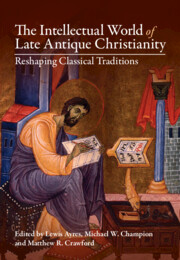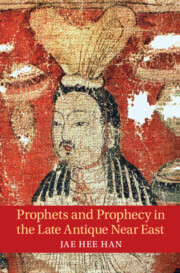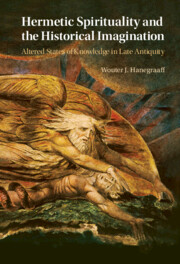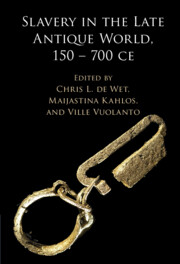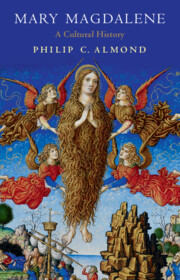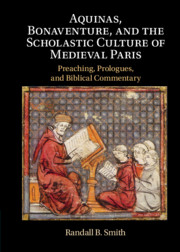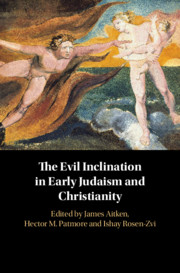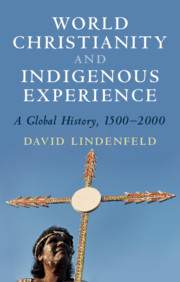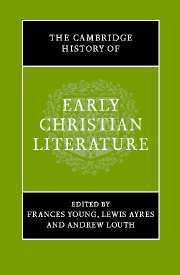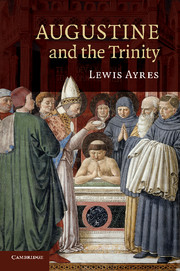The Intellectual World of Late Antique Christianity
Reshaping Classical Traditions
$150.00 ( ) USD
- Editors:
- Lewis Ayres, University of Durham and Australian Catholic University, Melbourne
- Michael W. Champion, Australian Catholic University, Melbourne
- Matthew R. Crawford, Australian Catholic University, Melbourne
- Date Published: October 2023
- availability: This ISBN is for an eBook version which is distributed on our behalf by a third party.
- format: Adobe eBook Reader
- isbn: 9781108880565
Find out more about Cambridge eBooks
$
150.00 USD
( )
Adobe eBook Reader
Other available formats:
Hardback
Looking for an examination copy?
This title is not currently available for examination. However, if you are interested in the title for your course we can consider offering an examination copy. To register your interest please contact [email protected] providing details of the course you are teaching.
-
The Intellectual World of Late-Antique Christianity explores new perspectives on early Christian epistemology in relation to the changing discourses, institutions, and material culture of late antiquity. Early Christian modes of knowing and ordering knowledge involved complex processes of appropriation, reproduction, and reconfiguration of Jewish and classical epistemologies. This helped Christians develop cultures of interpretation and argument as textually oriented religious communities within the Roman Empire and beyond. It laid an intellectual foundation that would be built upon and modified in a variety of later contexts. Encompassing Greek, Latin, and Syriac Christianity, and an historical arc that stretches from the New Testament to Bede, this volume traces how diverse theological commitments resulted in distinctive Christian accounts of knowing. It foregrounds the myriad ways in which early Christian epistemology was embedded in earlier intellectual traditions and forms of life, and how they established norms for communal life and powerful ways of acting in the world.
Read more- Offers original examples and models for studying a broad swathe of early Christian epistemology
- Analyses of a large diversity of early Christian cultural production across Greek, Latin, and Syriac sources in a variety of contexts
- Enables dialogue between multi- and inter-disciplinary perspectives from areas such as Patristics and Early Christian Studies, Historical Theology, Classics, Art History, Ancient Philosophy, Late-Antique Studies (including study of grammar, rhetoric, law, medicine, and philosophy)
Customer reviews
Not yet reviewed
Be the first to review
Review was not posted due to profanity
×Product details
- Date Published: October 2023
- format: Adobe eBook Reader
- isbn: 9781108880565
- availability: This ISBN is for an eBook version which is distributed on our behalf by a third party.
Table of Contents
1. Modes of knowing and the ordering of knowledge in early Christianity Lewis Ayres, Michael Champion, Matthew R. Crawford
2. The beginnings of a Christian doctrine of the spiritual senses before Origen Jane Heath
3. Health, medicine, and philosophy in the school of Justin Martyr Jared Secord
4. The structure of the ascetic self in Irenaeus of Lyons Paul Saieg
5. The order of education and knowledge in clement of Alexandria Matyáš Havrda
6. Origen's institutions and the shape of biblical scholarship Peter Martens
7. Dialogue and catalogue: Fate, free-will, and epistemology in the Book of the Laws of the Countries Scott Johnson
8. Iamblichus on divination and prophecy Peter Struck
9. Cyprian, scripture and socialisation: forming faith in the catechumenate and beyond Edwina Murphy
10. Sacrificial knowing: Cyprian and early Christian ritual knowledge Andrew McGowan
11. Learning the language of God: tables in early Christian texts Andrew Riggsby
12. The Aëtian Placita and the church fathers: creative use of a distinctive mode of ordering knowledge David Runia
13. Nicaea's frame: the organisation of creedal knowledge in late antiquity and modernity Andrew Radde-Gallwitz
14. The Arian controversy and the problem of image(s) Rebecca Lyman
15. Imaging Ephrem the author Jeffrey Wickes
16. Homilies as 'Modes of Knowing': an exploration on the basis of Greek patristic sermons (ca. 350-ca. 450 CE) Johan Leemans
17. Dissemination of biblical narratives, motifs, and figures through early Christian inscriptions and homilies Cilliers Breytenbach
18. How to make use of pagan knowledge without separating oneself from the church's milk: the function of otherness in Gregory of Nyssa's theory of self-perfection Jan Stenger
19. Female characters as modes of knowing in late imperial dialogues: the body, desire, and the intellectual life Dawn LaValle Norman
20. The Christianity of Latin Christian poetry Mark Edwards
21. Ambrose's hymns as modes of knowing the 'Real' Brian Dunkle
22. Confused voices: sound and sense in the later Augustine Carol Harrison
23. Precision and the limits of human autopsy in Augustine's critique of pagan divination Michael Hanaghan
24. Duplex via: authority and reason at Cassiciacum Gerald Boersma
25. The object of our gaze: visual perception as a mode of knowing Robin Jensen
26. Reconsidering the tholos image in the Eusebian canon tables: symbols, space, and books in the late antique Christian imagination Matthew Crawford
27. Condemning the glutton of the monastery: rhetorical strategies and the epistemology of Philoxenus of Mabbug Jeanne-Nicole Mellon Saint-Laurent
28. Evagrius of Ponticus on lupē: Distress and cognition between philosophy, medicine, and monasticism Jonathan Zecher
29. Liturgical modes of knowing: coming to know God (and oneself) in sixth-century hymns and homilies Sarah Gador-Whyte
30. Prolegomena to philosophy and the ascetic ordering of knowledge Michael Champion
31. Bureaucratic modes of knowing in the late roman empire Sara Ahbel-Rappe
32. The dissemination and appropriation of legal knowledge in the age of Justinian Peter Sarris
33. The ordering of knowledge in four late patristic Christological handbooks Dirk Krausmüller
34. World and empire: contrasting the cosmopolitan visions of Maximus the Confessor and George of Pisidia in seventh century Byzantium Paul Blowers
35. Boethius on the ordering of knowledge John Magee
36. Ordering emotional communities: modes of knowing in Gregory the Great Bronwen Neil
37. Creating knowledge and knowing creation in late antique theological and scientific writing Helen Foxhall Forbes
38. Hierarchies of knowledge in the works of Bede Zachary Guiliano
39. Epilogue Teresa Morgan.
Sorry, this resource is locked
Please register or sign in to request access. If you are having problems accessing these resources please email [email protected]
Register Sign in» Proceed
You are now leaving the Cambridge University Press website. Your eBook purchase and download will be completed by our partner www.ebooks.com. Please see the permission section of the www.ebooks.com catalogue page for details of the print & copy limits on our eBooks.
Continue ×Are you sure you want to delete your account?
This cannot be undone.
Thank you for your feedback which will help us improve our service.
If you requested a response, we will make sure to get back to you shortly.
×
